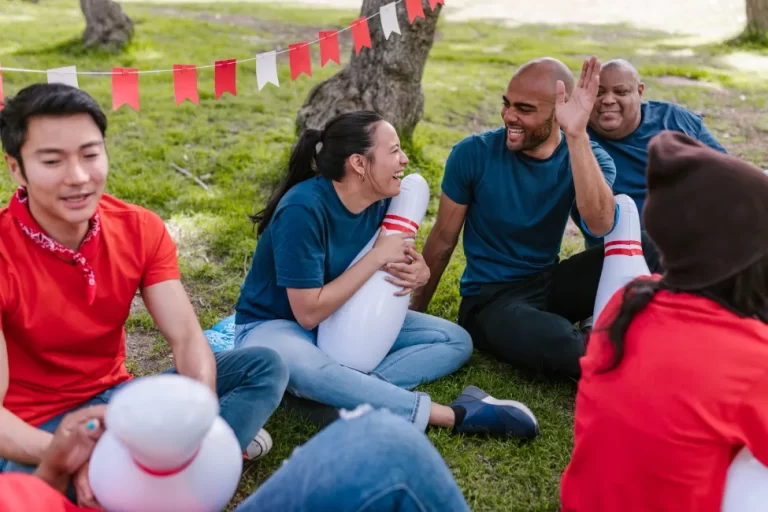What Is a Retreat? Spiritual, Yoga, and Other Retreats Explained

Are you looking for a way to relax and get away from the everyday stressors of life?
A retreat can be the perfect solution! It can be a time to focus on your spirituality, practice yoga or meditation, or just take some time for yourself.
There are all sorts of different retreats available, so you can find one that fits your needs.
What Is a Retreat?
A retreat is an intentional break from one’s normal routines and activities, usually for a period of reflection, relaxation, or spiritual exploration.
It is typically a short-term event, ranging from overnight to a week or more.
Retreats are often designed to provide time for participants to focus inwardly on their values, goals, and purpose in life.
They can be held at a variety of locations including spas, parks, and religious institutions.
During the retreat, participants may practice various forms of self-care such as yoga and meditation; take part in workshops and lectures; engage in spiritual practices such as prayer or chant; share stories with other participants; explore personal relationships; learn new skills or hobbies, and reconnect with nature.
Some retreats emphasize physical activity such as hiking or surfing; others may include creative endeavors like writing or painting workshops.
Retreats can be organized by individuals, families, communities, schools, or businesses. They can also be organized by professional retreat leaders who provide a structure through activities that focus attention on specific goals such as health improvement and self-development.
Whatever the purpose of the retreat may be – whether it’s to reconnect with oneself spiritually or escape the demands of everyday life – it should offer the opportunity to experience something novel and meaningful that allows one to step outside of their routine.
Retreats are an important part of self-care – they provide an opportunity to nurture relationships with oneself and others while replenishing energy through relaxation, contemplation, creative play, and exploration.
What Are the Different Kinds of Retreats?
There are many different kinds of retreats, including spiritual retreats, yoga retreats, mindfulness retreats, meditation retreats, and more. The only limit is your imagination!
You can organize a baking retreat, a writing retreat, a sports retreat… whatever makes you feel refreshed!
But let’s take a look at some of the most common types of retreats.
Spiritual Retreats
Spiritual retreats might include activities such as chanting, prayer, and meditation. They often involve a deepening of one’s relationship with themselves and the divine.
A spiritual retreat is a time dedicated to recharging and refocusing on one’s spirituality, often using practices such as meditation, contemplation, prayer, and self-reflection.
In the Christian tradition and during Buddhist retreats there is usually set aside time for reflection, silence, and prayer.
Common activities can include daily religious services or prayers, Bible study classes and lectures on topics related to one’s faith, silent contemplation, and group activities such as community service, and worship music rehearsals.
The goal of a spiritual retreat is to help individuals become more connected with their inner self, and gain clarity in life’s purpose while also deepening their relationship with God / the Divine/ the Universe / Higher Power. Different religious communities might have slightly different ways of doing this.
A spiritual retreat provides an opportunity for individuals to escape their day-to-day routines to ‘turn inward’ and focus on the bigger picture.
A good spiritual retreat should be focused on the personal exploration of one’s inner self in search of stillness, peace, and understanding.
Participants may have the opportunity to explore different aspects of their own beliefs through learning about religious traditions or attending lectures from experienced speakers and attending workshops or other spiritual exercises.
During spiritual retreats, there should also be plenty of downtimes filled with relaxing activities such as yoga or walking meditation in nature to help further connect with oneself spiritually.
A successful spiritual retreat can have profound effects; offering participants insight into their soul journey and deepening personal relationships with God or the universe.
Meditation Retreats
Meditation retreats give people the opportunity to refresh and reenergize their minds through various forms of meditation.
The main goal of a meditation retreat is to help participants cultivate inner peace, awareness, and calmness. Even if you are a novice, this can be a great way to learn how to meditate.
During these retreats, one can learn different types of meditation such as mindfulness, mantra or guided meditation, chakra meditation, and more.
Usually, participants can also explore the philosophy behind each practice, as well as experiment with different positions and breathing techniques to find what works best for them.
Other activities offered may include lectures on the history of meditation or yoga classes.
Meditative retreats focus on the inner journey of the soul, allowing for self-reflection and introspection in a supportive environment.
You might also come across general wellness retreats, which often incorporate elements of meditation and other activities focused on restoring health.
Yoga Retreats
Yoga retreats are designed to help people reconnect with their bodies and minds.
It often blends the physical exercise of yoga, with the spiritual contemplation of meditation, creating a powerful combination for recharging and calming the mind.
During a yoga retreat, participants can explore different types of yoga such as Ashtanga, Vinyasa, or Hatha yoga.
Yoga retreats also typically involve various workshops and lectures on topics such as nutrition and anatomy as well as guided meditation sessions.
The goal of a yoga retreat is to bring the mind, body, and spirit into harmony – allowing participants to experience deep inner peace and relaxation.
If this sounds interesting to you, check out the best yoga retreats in Costa Rica for some ideas!
Solo Retreats
Solo retreats are ideal for anyone looking for getting away from one’s normal life.
During solo retreats, individuals can have the opportunity to focus entirely on their spiritual journey and practice self-care in a safe and nurturing environment.
You could choose to go to a retreat center and participate in activities offered there or simply rent an Airbnb, book an eco-lodge for some nature time, or stay in a hostel and explore the local area.
Solo retreats also provide an opportunity for people to engage in tasks such as journaling, reading inspiring spiritual materials, or just sitting in nature to contemplate life’s mysteries.
The main goal of a solo retreat is for individuals to reconnect with their inner self and recenter.
Team Retreats
A team retreat is a gathering of colleagues from the same organization in a relaxing and inspiring environment, separate from their usual work setting.
It allows teams to connect on a deeper level, beyond their professional roles, by engaging in activities that foster creativity and collaboration. These can include icebreakers and team-building exercises, such as problem-solving or physical challenges.
Additionally, team retreats provide a platform for employees to address any interpersonal issues that may be affecting team performance and morale.
The primary benefit of a team retreat is increased productivity.
Spending time away from the office allows teams to reset their minds, escape distractions and recharge their energy levels so they are more focused when they return to work.
During these group retreats, teams can brainstorm ideas together to come up with innovative solutions that would otherwise not be possible in an office environment. Furthermore, spending quality time together outside of work builds trust and strengthens relationships between co-workers which helps create an energizing atmosphere when they return to the workplace.
Team retreats also allow employees to connect with nature by either participating in outdoor activities or simply enjoying the serene ambiance of natural surroundings away from busy cities and towns.
Taking some time off from technology is beneficial for mental health too; it helps reduce stress levels caused by emails, texts, or phone notifications which often lead to fatigue or burnout if not managed properly.
Having fun together also allows teams to celebrate successes within their department as well as build camaraderie among co-workers which ultimately leads to improved communication.
How Long is a Retreat?
A retreat can range in length, depending on the goals and preferences of participants.
Generally, a retreat lasts anywhere from a few days to a week or two, although longer retreats are also possible.
For example, some spiritual retreats may last up to three weeks or longer.
Weekend retreats are usually considered to be the shortest type of retreat and can last for one day or two nights, offering participants an opportunity to rest and relax away from their day-to-day routines.
Longer retreats typically involve more intensive activities such as yoga, meditation, spiritual exploration, and personal development workshops that take place over several days or weeks.
A month-long retreat is designed for those who want to immerse themselves in a deeper exploration of themselves and their environment and allow more time for reflection and contemplation.
Key Takeaways
If you’re feeling stressed out and need some time to relax, a retreat is a perfect way to do it. You can choose a spiritual retreat to connect with your higher power, a yoga retreat to improve your health and wellness, or any other type of retreat that interests you.
Whatever type of retreat you choose you’re sure to come back feeling refreshed and rejuvenated.
And remember, you don’t necessarily have to go to retreat centers to experience the benefits of a retreat. Even taking some time off to unplug, get out of your normal routine, meditate, and recharge at home can do wonders for your mental and emotional well-being.





